Minsk is the capital and largest city of Belarus.
The capital is situated on the Svislač and the Nyamiha Rivers, and since it’s the national capital it has a special administrative status in Belarus.
The importance of Minsk, therefore, lies in the fact that it is the administrative center of the Minsk Region and Minsk District.
The city is great for tourists, as it’s a combination of historical buildings, modern apartments and shopping centers, and buildings and monuments typical for ex-Soviet Union countries.
You can go sightseeing, dining and shopping just like everywhere else in the European Union, while still enjoying that native Russian vibe.
Warnings & Dangers in Minsk

OVERALL RISK: LOW
You must apply the same precautions you would in any other country, and you’ll be fine. That means avoiding dangerous and secluded areas and flashing material goods in public places. If you stick to your wits, you won't have problems in Belarus.

TRANSPORT & TAXIS RISK: LOW
Public transport in Minsk is mostly reliable and safe. Driving in Minsk, however, can be dangerous for both pedestrians and drivers! Expect drivers to change lanes at will, mostly without any warning or even driving very close to the vehicle in front of then. Apart from that, you should be careful when commuting in public transportation, since pickpockets love crowds.

PICKPOCKETS RISK: MEDIUM
Since Minsk is the capital of Belarus, it only makes sense that there will be some petty criminals trying to take advantage of tourists. Always be careful with your belongings, and never leave them anywhere. Keep all your valuables in a safe or in your accommodation.

NATURAL DISASTERS RISK: LOW
Even though Minsk is susceptible to some disasters due to both natural and man-made hazards, the key man-made hazards refer mainly to nuclear accident contamination (after the infamous Chernobyl disaster). Even though it happened more than 30 years ago, the area is still highly radiated.

MUGGING RISK: LOW
Minsk has a pretty low level of street crime. This is mostly because crime is severely punished by the government and there's not a much-organized crime within the country. Still, you are advised to avoid poorly lit streets and secluded areas.

TERRORISM RISK: LOW
Although there is no recent history of terrorism in Minsk, attacks cannot be ruled out, so visitors are strongly advised to remain aware of their surroundings at all times.

SCAMS RISK: LOW
There aren't any known scams that are typical for Belarus specifically, but that doesn't mean there aren't any scams towards tourists and visitors. Usually, when people see you're a tourist, there will always be those who will come up with a trick to draw money from you. Be aware of your surroundings always.

WOMEN TRAVELERS RISK: LOW
Women are not in any danger while in Minsk. The city truly isn't known for being dangerous for women, but common sense is still of key importance. Do not do things you wouldn't in your own country, like walking by yourself at night or roaming around secluded areas.
So... How Safe Is Minsk Really?
Although many reports claim otherwise, Minsk is a city where you have to try hard to find trouble or have something bad happen to you, and most tourists have nothing but positive experiences when it comes to safety.
Minsk and entire Belarus are known for heavy police presence, so should you ever need anything, you’ll always encounter help from the policemen.
They are, most often than not, very friendly and helpful.
You should know, though, that their ability to speak English is – in a best-case scenario – very limited.
Heavy police presence can also lead to some uncomfortable situations: if you take photographs of state buildings or the Lenin monument, you might get in trouble with the authorities.
But that’s not always the case and you might be observed and kindly ushered away from the monument.
One of very few dangers in Mins is the risk of reckless drivers hitting you, or being involved in some kind of an accident while you’re in a car.
Also, be wary of cars or delivery trucks moving on sidewalks.
Parking in Minsk is also very limited, which is why drivers often park their vehicles onto pedestrian lanes.
How Does Minsk Compare?
| City | Safety Index |
|---|---|
| Minsk | 77 |
| Sao Paulo (Brazil) | 45 |
| Rio de Janeiro (Brazil) | 43 |
| Sofia (Bulgaria) | 73 |
| Siem Reap (Cambodia) | 63 |
| Phnom Penh (Cambodia) | 61 |
| Niagara Falls (Canada) | 87 |
Useful Information

Visas
Most countries do not need a visa to enter Minsk unless you're planning to stay for longer than 30 days. If so, you might need to acquire one, but your best bet is to ask about visa requirements in your local Belarus embassy. If you want to transit Belarus in other circumstances without a visa, the border authorities will send you to Minsk to obtain the appropriate visa.

Currency
Belarusian ruble is the official currency in Minsk. You can use ATMs and exchange offices throughout the country, and credit cards are accepted in most restaurants and tourist facilities. Bargaining isn't a practice in Minsk, except for taxi cabs. You should vigorously bargain with taxi drivers whenever the opportunity arises.

Weather
Minsk boasts a, much friendlier than Russian, temperate-continental climate characterized by moderate features typical for Central Europe, with relatively mild summers and long, cold winters. Belarus has a significant amount of rainfall during the year and this applies even for the driest of months. The best time to visit Minsk is during its warm summers - from June to September.

Airports
Minsk National Airport is the main and the busiest international airport in the capital of Belarus. It is located 42 km to the east of the center of Minsk, belonging, in a geographic sense, the territory of Smalyavichy Raion.

Travel Insurance
As in any other country or city, travelers going to Minsk are highly advised to get travel insurance that covers not only medical issues but also theft and loss of personal items.
Minsk Weather Averages (Temperatures)
Average High/Low Temperature
| Temperature / Month | Jan | Feb | Mar | Apr | May | Jun | Jul | Aug | Sep | Oct | Nov | Dec |
|---|---|---|---|---|---|---|---|---|---|---|---|---|
| High °C | -4 | -2 | 2 | 10 | 18 | 21 | 22 | 21 | 16 | 9 | 3 | -1 |
| Low °C | -9 | -8 | -4 | 1 | 7 | 11 | 12 | 11 | 7 | 3 | -1 | -6 |
| High °F | 25 | 28 | 36 | 50 | 64 | 70 | 72 | 70 | 61 | 48 | 37 | 30 |
| Low °F | 16 | 18 | 25 | 34 | 45 | 52 | 54 | 52 | 45 | 37 | 30 | 21 |
Belarus - Safety by City
| City | Safety Index |
|---|---|
| Minsk | 77 |

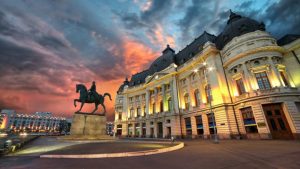
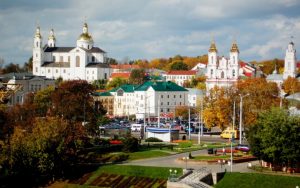
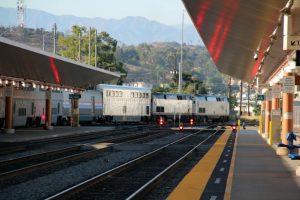
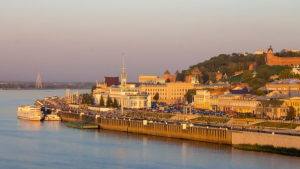
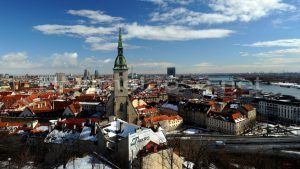
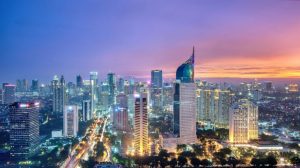





Please note that Minsk is not located in Russia, it is a capital of a different state, Republic of Belarus (and thanks to that you can arrive here without visa for up to 30 days). So “still enjoying that native Russian vibe” is not a politically correct description for tourist experiences in Minsk. Unlike most Russian cities, Minsk provides high-quality public transportation, is not characterized by cars parked in the middle of pedestrian path and is, indeed, quite welcoming to tourists from whichever country of Europe or Americas. Majority of Belarusians (70 – 85% according to different surveys, and that number is even higher in Minsk) support the idea of independent sovereign Belarus, that is why I mention this point.
Russian vibe
Interesting and opportune comment about the independency of belarus, however, it was not the intention of the author to question that. When it’s said “native Russian vibe”, there wasn’t any reference to politics or even detracting the national Belarusian culture: the author only highlighted the links between Russia and Belarus are remarkable to the point someone can feel far away from the vibration of the European Union and much closer to the Russian world.
My personal opinion: i had the best of impressions about Belarus and it has indeed a strong Russian vibe (which for me has a meaning of compliment)
Minsk is one of the most beautiful cities in the world.
And i completely disagree that transportation in Russian cities is bad.